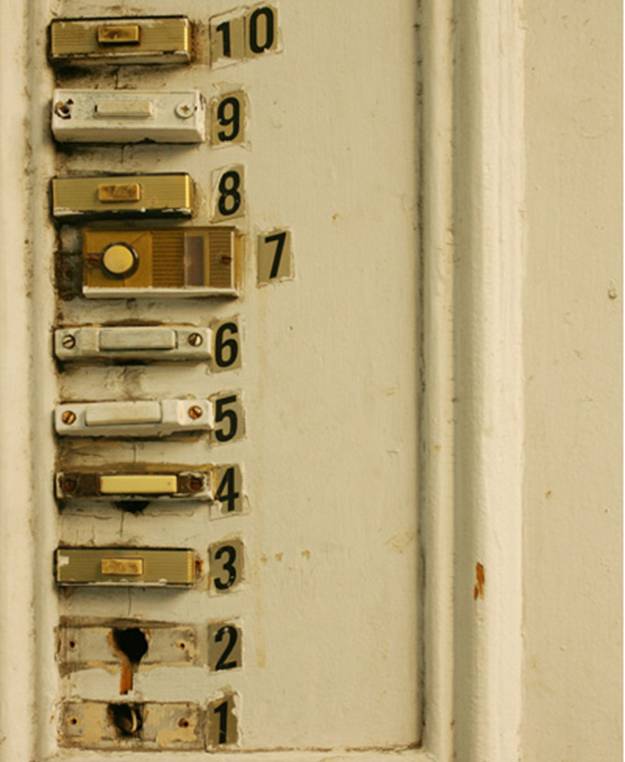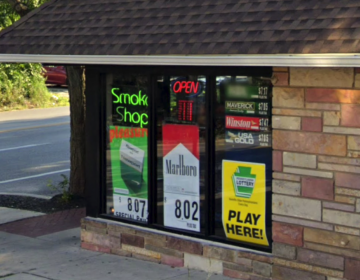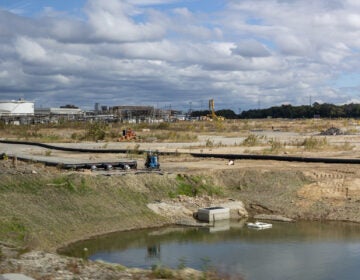Economy spurring home conversions

Photo: Kate McDonnell / Urbanphoto
Mar. 6
By Thomas J. Walsh
For PlanPhilly
As jobs and savings accounts dwindle, Philadelphia homes are slowly becoming increasingly multi-generational or multi-family, zoning officials say. Though there are no hard numbers yet to put to the anecdotal evidence, roomy rowhouses and single-family homes alike are taking on boarders, too.
All of which means more parked cars on the streets of certain neighborhoods. And that means more of everything else that’s vehicle-related: More car alarms going off, car horns blasted and parking space squabbles. More doors slammed at 2:30 a.m.
And more complaints to zoning officials. But unless a home that is zoned as “single-family” has more than three unrelated adults residing there, temporary housing arrangements among families – or permanent arrangements, for that matter – are perfectly legal.
“We’re seeing a lot of variance requests for single-family to go to duplexes, or to go to triplexes,” said Susan Jaffe, chairman of the Zoning Board of Adjustment and a Zoning Code Commissioner. “I expect that for many, it is an economic situation. And you feel very badly when it might not be an appropriate thing to do.”
Jaffe said variance requests for home conversions are by no means unusual, “but clearly there’s more of an increase in wanting to have more units in houses. More in some neighborhoods than others.”
Overcrowding problems are not new, either. As far back as 2003, when overlay zoning legislation was introduced for the Yorktown neighborhood of North Philadelphia, residents of single-family homes there complained that student housing, from the rapidly expanding nearby Temple University, was spilling into their neighborhood. That has not been economy-related, Jaffe said, but it has continued. (There are at least two cases currently being heard in Common Pleas Court, she said.)
“Most of the more recent cases from single to multifamily are in neighborhoods where the houses are fairly large,” Jaffe said.
“It makes complete sense,” said Alan Greenberger, executive director of the City Planning Commission. “You’ve got all this housing and people who are nervous about money, and they are looking to take on boarders. The issues that it brings together are interesting.”
Some of those issues are economic, Greenberger said. But others are tried-and-true, not-in-my-backyard concerns.
“There’s a lot of community pressure to not zone areas for multiple family dwellings in what have historically been neighborhoods of single family houses,” he said. “There’s also a pre-disposition to not like renters. There is nervousness about parking, particularly with rowhouses, where they have long had to deal with this issue.”
Greenberger said that in some neighborhoods, requests have been made to render all houses single-family. When certain streets get such a new designation, it doesn’t mean homes with multiple units must change. It just means the properties would be classified as “nonconforming” – which is not to say “illegal.” It’s the next owner of a given nonconforming property that must make the changes. Or, a current owner can apply for a variance.
The conflicts are regular in older, more established neighborhoods like Fairmount, he said, but Jaffe mentioned that there are often the same kinds of clashes in emerging areas, such as Northern Liberties.
In Yorktown, Greenberger said, a big issue is that some long-time residents sold their properties to investors who converted them into multifamily dwellings.
“Kids and college students lead lives at a different time of day,” he said. “Even if nobody’s behaving badly, you have the potential problems of people getting back late, car doors slamming, that kind of thing.”
In any case, having too many people, legally or otherwise, crowded into one house – in the age of 5,000-square-foot, foreclosed-upon McMansions – is sadly ironic. Sprawling neighborhoods with thousands of homes, covering great swaths of certain Florida counties, for example, are virtual ghost towns. (See related story)
But none of that makes a difference to someone in Philly living next door to a house where a setback area has been paved over to accommodate more parking. That’s going to get someone upset for certain, Greenberger said, no matter what the state of the economy.
Contact the reporter at thomaswalsh1@gmail.com.
WHYY is your source for fact-based, in-depth journalism and information. As a nonprofit organization, we rely on financial support from readers like you. Please give today.






